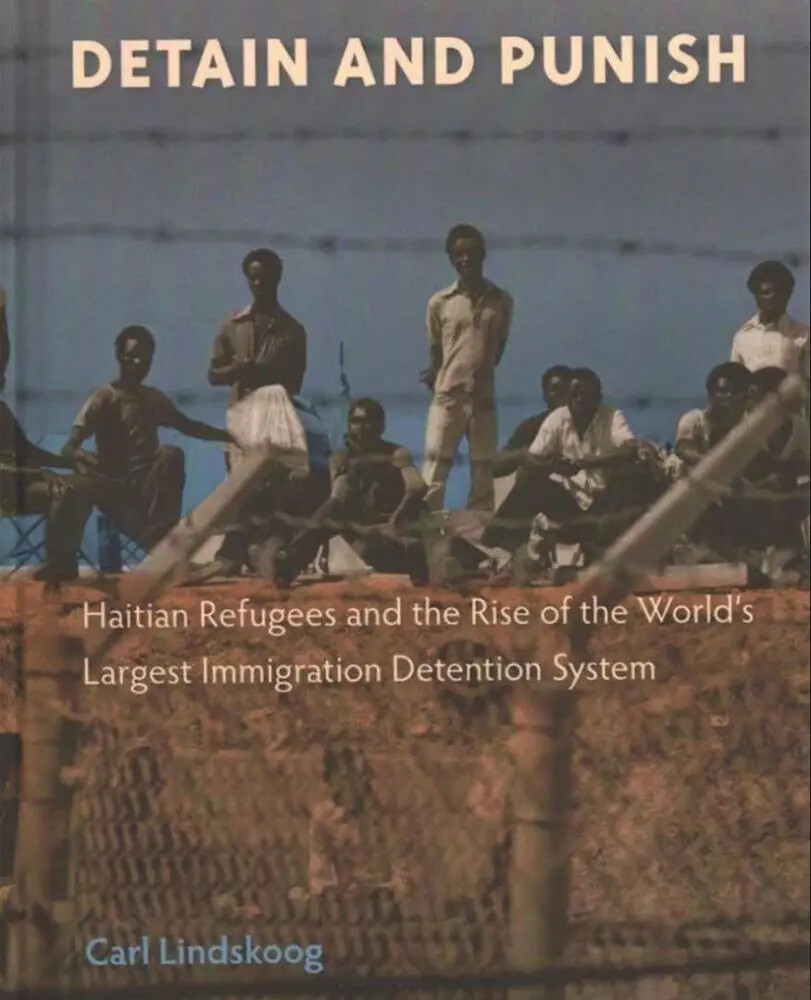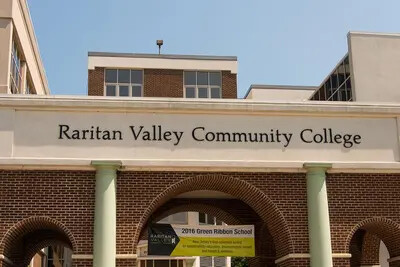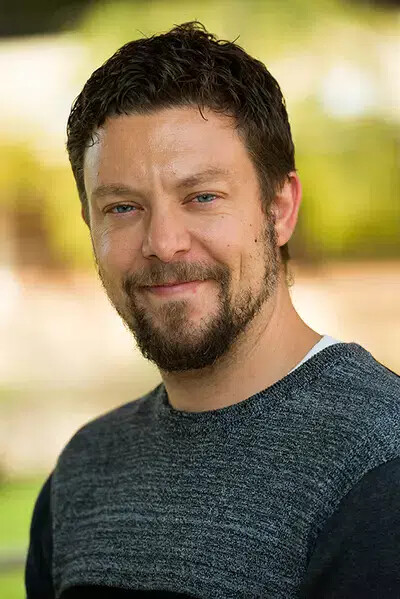Professor Pens New Book on Haitian Refugees

A new book by a Raritan Valley Community College professor asserts that systems designed for Haitian refugees in the 1970s laid the groundwork for the way immigrants are treated in the United States. Dr. Carl Lindskoog, RVCC Assistant Professor of History, shares his expertise on the topic in Detain and Punish: Haitian Refugees and the Rise of the World's Largest Immigration Detention System (University Press of Florida).
From the Krome Detention Center in Miami, to Guantanamo Bay, Cuba, and to jails and prisons across the country, Haitians have been at the center of the immigration detention story. According to Dr. Lindskoog, when an influx of Haitian migrants and asylum seekers came to the U.S. in the 1970s, the government responded with exclusionary policies and detention, setting a precedent for future waves of immigrants. Drawing on extensive archival research, including government documents, advocacy group archives, and periodicals, the author provides the first in-depth history of Haitians and immigration detention in the United States.
According to Dr. Lindskoog, immigrants currently comprise the largest proportion of federal prisoners in the United States, incarcerated in a vast network of more than 200 detention facilities. The Teaneck resident’s book investigates when detention became a centerpiece of U.S. immigration policy, revealing why the practice was reinstituted in 1981 after being halted for several decades. Dr. Lindskoog, who has been teaching at RVCC since 2010, details the discrimination Haitian refugees faced in the United States and how their resistance to this treatment—in the form of legal action and activism—prompted the government to reinforce its detention program and create an even larger system of facilities.
Aviva Chomsky, author of Undocumented: How Immigration Became Illegal, says that Detain and Punish offers “urgent topical and contemporary significance, providing a salutary context to today’s political debates. Shows how systems, policies, and even detention centers that were designed for Haitian refugees grew insidiously over the decades into a more and more encompassing immigrant detention system. An original and fascinating contribution.”
Dr. Lindskoog's articles on immigration have appeared in a number of publications, including the Washington Post, and he has lectured widely on immigration-related topics. At Raritan Valley Community College, he teaches courses in United States, Latin American, and African American history. He received his Ph.D. from the City University of New York.
Lindskoog will address many of the topics in the book in an upcoming lecture about immigration, November 28, at 4 p.m., at RVCC’s Branchburg campus. The event, "How the United States Became a Nation that Imprisons Children and Separates Immigrant Families," is free of charge and open to the public. It will be held in the RVCC Atrium.
For additional information about the lecture, contact Kevin Reilly at kevin.reilly@raritanval.edu.
Ranked by BestColleges.com, WalletHub.com, and Niche.com as the #1 community college in New Jersey, Raritan Valley Community College has been serving as an academic and cultural center for Somerset and Hunterdon County residents for 50 years. The College has been nationally recognized for its service to the community, environmental stewardship, and commitment to diversity. It is home to a Planetarium, Science Education Institute and 3M Observatory; a 1,000-seat Theatre offering professional performances for all ages; and an Honors College for high achieving students.
The College offers more than 90 associate degrees and certificates, as well as career training, small business assistance through the Small Business Development Center, professional development, and adult and youth personal enrichment courses. RVCC is located at 118 Lamington Road in Branchburg, NJ. For further information, visit www.raritanval.edu.
###
FOR IMMEDIATE RELEASE
November 19, 2018
Media contact: Donna Stolzer, 908-526-1200, ext. 8383
PR #65



